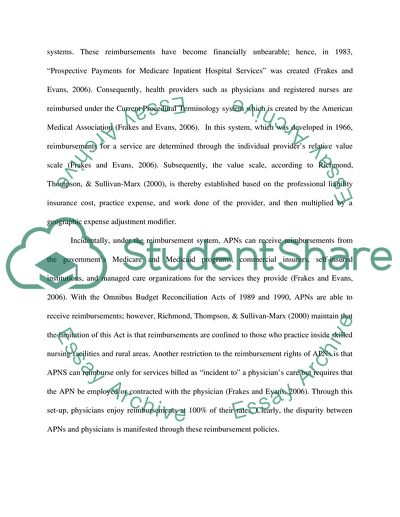Cite this document
(Reimbursements of Advanced Practice Nurses Research Paper - 1, n.d.)
Reimbursements of Advanced Practice Nurses Research Paper - 1. Retrieved from https://studentshare.org/nursing/1748125-legislative-issues-paper-reimbursement-for-nurse-practitioners
Reimbursements of Advanced Practice Nurses Research Paper - 1. Retrieved from https://studentshare.org/nursing/1748125-legislative-issues-paper-reimbursement-for-nurse-practitioners
(Reimbursements of Advanced Practice Nurses Research Paper - 1)
Reimbursements of Advanced Practice Nurses Research Paper - 1. https://studentshare.org/nursing/1748125-legislative-issues-paper-reimbursement-for-nurse-practitioners.
Reimbursements of Advanced Practice Nurses Research Paper - 1. https://studentshare.org/nursing/1748125-legislative-issues-paper-reimbursement-for-nurse-practitioners.
“Reimbursements of Advanced Practice Nurses Research Paper - 1”, n.d. https://studentshare.org/nursing/1748125-legislative-issues-paper-reimbursement-for-nurse-practitioners.


